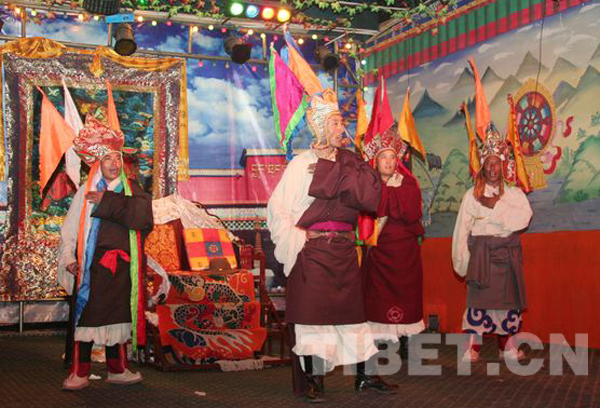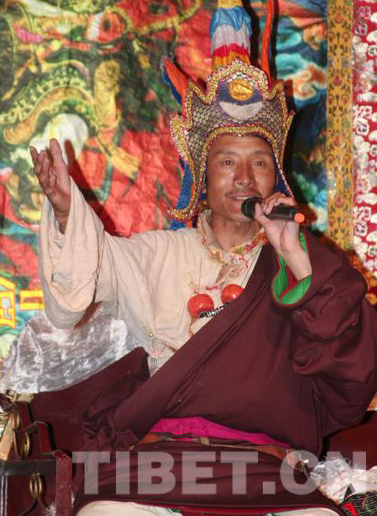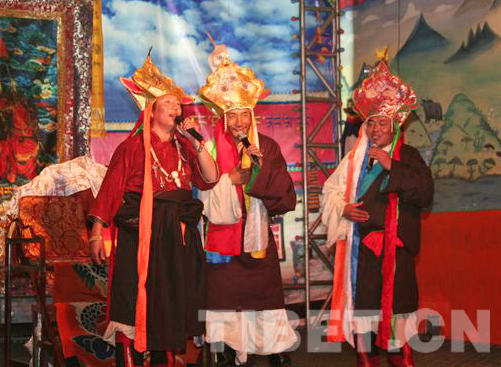
Tibetan ballad singers perform the epic King Gesar (photo from China Tibet Online)
Recently, several Tibetan ballad singers staged the performance of the epic King Gesar in an earnest hope for introducing the heroic story to the outside world while carrying forward its unique oral story-telling art form during the Changtang Qachen horse racing festival in Nagqu County, southwest China's Tibet Autonomous Region.
Most of them aged from their twenties to fifties come from remote farming and pastoral areas with their own experiences of being blessed by gods.
They performed ballad singing at the culture centers of Nagchu County from time to time so that tourists and local citizens can enjoy the epic at any time.
In the meanwhile, these singers also hoped that more people could understand this ancient art form and King Gesar, the great epic so popular among Tibetans as well as many other ethnic groups inhabited on the Qinghai-Tibet Plateau would be passed down from generation to generation.

Tibetan ballad singers perform the epic King Gesar (photo from China Tibet Online)
As the longest heroic epic in the world, the epic King Gesar consists of more than 120 sections with about 20 million words in over 1 million lines.
It was originated from an oral literature work about a legend of King Gesar fighting against monsters and protecting the local Tibetans, and finally returning to the heaven after unifying Tibet.
The performance is pretty flexible in form, time, location, etc. Besides, the singers can present any part of the epic as they like or as required by the audience.

Tibetan ballad singers perform the epic King Gesar (photo from China Tibet Online)
